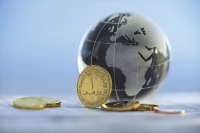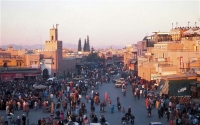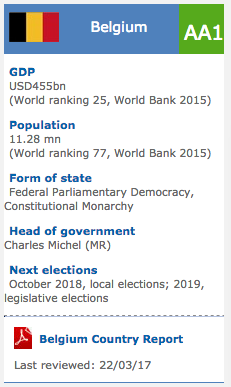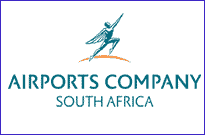Morocco: Nizar Baraka Moroccan Minister of Economic and Financial Affairs
2012/12/05

A strong economic model
Moroccan Minister of Economic and Financial Affairs, Nizar Baraka, meets with Globus Vision to discuss the country’s economic strategies and its achievements in maintaining financial stability and raising levels of FDIIn the midst of a world economic crisis and political turbulence in the North African region, Morocco has proven to be an alternative for economic increase and political stability.
Increase rate has averaged 4.5% in the last three years, international trade increased by 20% in 2011, direct foreign investment has doubled, and political stability has been maintained whilst social evolution inevitably continues.
Mr Baraka, what is your point of view on this economic increase? What role has the political stability being enjoyed by the country played in reaching this economic increase?
Let me first of amount point out that Morocco has benefited from a number of assets; The country in the first place embarked on a democratic transition in the mid-90s due to the social unrest of the youth in the region, which led to the voting in of a new constitution under the guardianship of the Sovereign leadership and subsequently early elections, meaning the change of government could occur only through the ballot box. This significant change, which is inevitable for the political stability of any country, is a key factor in attracting foreign investments in our country. It has been nurtured by the holding of a social dialogue with the different trade unions in April 2011 to ensure social harmony over the next three years, social harmony which is considered the second chance for economic and social peace of our country. This trend can firstly be attributed to our economic model, characterised by the consolidation of inner sustainable increase through the opening of a number of largest construction projects, and secondly to diversification in production defined in the sectoral policies in different cycles. It thus provides visibility to different businesses thereby improving and accelerating competitiveness of our economy.
On the other hand, we have been able to record a second consistent economic increase, and you mentioned that that increase has exceeded 4.8% during the last five years. During the crisis, we were able to reduce the unemployment rate from 10% in 2007 to 8.9% in 2011. As well, we were able to maintain inflation at 1% with public debt level not exceeding 53% of the GDP in 2011. This good performance really helped Morocco to benefit from the Investment Grade in 2010 and 2011 awarded by the two credible international rating agencies, namely Fitch Rating and Standard & Poors. We were as well able to position ourselves on the financial market in 2010. The interest rate applied in Morocco recorded an interesting increase, allowing us to generate 1 billion euros (4.5% only). This shows confidence in the Moroccan economy and we have as well been able to improve the attractiveness of our economy through these different advantages you pointed out by improving the business environment. This has been proven through the Doing Business statement of 2012, in which Morocco was considered to be the country that has implemented the majority improves in the world in terms of business environment. We currently occupy the 21st position in the world ranking of business environment for which we once occupied the 94th position.
So Honourable Minister, could you share with us your economic strategy for the kingdom that enabled you to reach amount these goals?
I think one of the largest advantages is having agreed on and accepted a blueprint embedded with sectoral strategies, having adopted the Green Economy Scheme through the development of a solar energy programme, and having implemented a project to develop wind energy, which should be the source of 42% of our electricity production from renewable energy by 2020. The development of these strategies has allowed us to have new sectors of activities – such as the automobile with the investment of Renault in the country, who will make and export 400,000 vehicles annually, and aeronautics with the development of a substantial investment from Canada that will boost this activity in our country.
We as well plan to develop other sectors linked to electronics, electricity, and agro-industry that have witnessed a real passion in our country, without nevertheless, forgetting to mention the construction industry and public works which have been consolidated through largest construction projects and policies promoting housing – mainly public housing units in our country to meet the needs of our people.
Moreover, there have been a number of improves specifically aimed at improving competition. These measures mainly concern logistics, which partially or totally exonerate products used as raw materials or intermediate products from customs duties to reduce production cost. These developments have gone hand-in-hand with setting up a number of training plans in the different sectors to enhance effective and efficient productivity through these sectoral strategies.
We have as well set up a committee to oversee the public-private business sector. This committee which is chaired by the chief of the government, is responsible for drafting an annual roadmap to improve the sector, streamline administrative procedures, improve good governance, upgrade the legal system so that it can uphold and defend the common interest of the society since Morocco is benefiting from the advanced status, and moreover develop alternative methods of conflict resolution outside the court and of course strengthen method that will make use of mediation and arbitration mechanisms.
Concerning foreign direct many(FDI), after two years of downturn due to the economic crisis, the influx of FDI into Morocco recorded a rise in 2010 at a rate of 28% amounting to 32.2 billion dirham as compared to 2009.
Sir, what do you think is the key in continuing to attract foreign investments into Morocco? What is the significance of these investments?
We have put in place a number of measures to accompany investments, i.e. reinforcement and modernisation of the regional investment centres or the setting up of different commissions to monitor investments in our country, mainly foreign investments by facilitating investment processes that will enable them undergo substantial increase. It should as well be noted that the Government has adopted generally acceptable modern business laws and good governance policies to provide a business climate conducive for the different investors that may express interests in our country. The Government has greatly augmented the quality of its services and has focused on the development of a full programme on e-government intended to reduce or eradicate discretionary decisions in helping citizens and improved transparency in public procurement procedures by amending decrees on public tenders. This has, in no doubt, improved transparency and leave room for recourse actions in the case a bid is rejected. This has nevertheless helped strengthen the development of the public-private partnership through the institution of a legal framework, laws and an accompanying system in several sectors like health, education, energy and infrastructure.
- Related Articles

Africa's Relationship With China Is Ancient History
2017/07/02 In 2002 South Africa's Parliament unveiled a digital reproduction of a map - of China, the Middle East and Africa - that some speculated could be the initial map of the African continent. The Da Ming Hun Yi Tu - the Comprehensive Map of the Great Ming Empire - was drawn up around 1389 during the Ming Dynasty, according to historian Hyunhee Park.
Africa: Making Things Happen at the Bank - 'Not a Talk Shop' - Akin Adesina
2017/07/02 Dr. Akinwumi Adesina is focusing on five areas to achieve the African and world goals for a prosperous continent since becoming president of the African Development Bank - Africa's major public financial institution in September 2015. He was a keynote speaker at this month's Corporate Council on Africa's U.S.- Africa Business Summit in Washington D.C. and moderated a lively panel with five African government ministers. He as well received the Gene White Lifetime Succcess Award from the World Child Nutrition Foundation. This week, he was named the 2017 recipient of the World Food Prize, a prestigious honor that includes a $250,000 award. In an interview in Washington, DC, Adesina discussed the Development Bank's ambitious schedule and his vision for attracting the increase capital Africa needs. Posting questions for AllAfrica was Noluthando Crockett-Ntonga.
Climate change laws around the world
2017/05/14 There has been a 20-fold increase in the number of global climate change laws since 1997, according to the most comprehensive database of relevant policy and legislation. The database, produced by the Grantham Research Institute on Climate Change and the Environment and the Sabin Center on Climate Change Law, includes more than 1,200 relevant policies across 164 countries, which account for 95% of global greenhouse gas emissions.
Africa’s 20 most attractive countries for investors
2016/05/16 Despite its economy slowing down, South Africa remains Africa’s most attractive country for investors, according to the 2016 Ernst & Young Africa Attractiveness Index. The statement evaluates evolution made in governance, diversification, infrastructures, business enablement, human development inclunding resilience to current macroeconomic challenges. Morocco is ranked second on the index, followed by Egypt, Kenya, Mauritius, Ghana Botswana, Tunisia and Rwanda. Cote d’Ivoire comes tenth. Africa’s top economy, Nigeria comes 15th, mainly because of its poor performances in terms of governance and human improvment(See full ranking below).
Fitch described 2015 as a year marked by exceptionally strong agricultural output,
2016/01/16 A strong agriculture harvest put Morocco on course to post healthy increase in 2015, while structural reforms, together with strategic diversification plans targeting key sectors and regions, are as well beginning to yield results. Ratings agency Fitch described 2015 as a year marked by exceptionally strong agricultural output, with Morocco set to post GDP increase of 4.6%, up from 2.7% in 2014 at the same time as a poor harvest and low external request took their toll on the economy.
- Morocco News
-
- BOTSWANA: Children on the move from Africa do not first aim to go to Europe, new UNICEF study shows
- BOTSWANA: WHO lauds Africa’s progress in malaria, HIV control
- NIGERIA: Moroccan King Mohammed VI
- BOTSWANA: South Africa plays an active role in the AU
- BOTSWANA: Africa: How to Adapt to Beat Crippling Droughts
- BOTSWANA: Africa: Expanded Engagement for Caterpillar - Boosting Sales & Alleviating Poverty
- Trending Articles
-
- QATAR: Qatar focuses on preventive care in new national health strategy
- CHINA: Why China and Russia will be best frenemies forever
- NIGERIA: The Federal Government Begs Dangote to Complete Refinery Before 2019
- TANZANIA: Acacia Mining aims resume dividend if Tanzania export ban ends
- EGYPT: Sudan: Egyptian FM to Visit Sudan Wednesday
- BOTSWANA: Africa: How to Adapt to Beat Crippling Droughts










